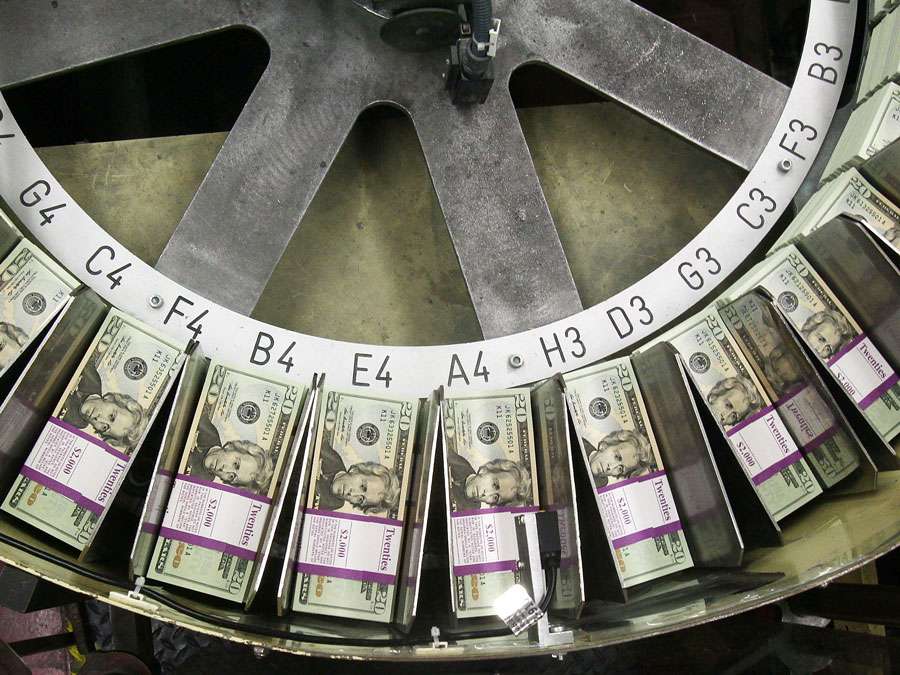Fed and Greece could surprise the 2016 bears
LONDON: One of the pitfalls of market-watching, whether for professional strategists or journalistic scribblers, is a tendency to accentuate the negative. (I’m ignoring sell-side equity analysts, whose preordained bullishness is largely indifferent to the economic backdrop.) Gloom, doom and misfortune are more interesting than cheerful optimism. And I’m as guilty as the next financial soothsayer.
But it’s often a good idea to try to take an opposing view, no matter how compelling the evidence for pessimism is. So here are my two outside bets on what could go right on the biggest financial issues that we’re carrying into 2016:
Fed cooks perfect porridge
At the start of this century, the so-called Goldilocks economy — with both growth and inflation not too hot, not too cold — was lauded as a thing of wonder and a joy to behold. The boom-bust cycle would become the province of historians; central banks, led by former Federal Reserve Chairman Alan Greenspan, hailed at the time as “maestro,” had achieved nirvana.
The credit crisis put paid to that golden scenario, also known at the time as the “new economy.” Instead, by 2009 the meltdown had ushered in what bond-investing behemoth Pacific Investment Management Co called “the new normal” as the replacement environment.
Fast forward to today. Economists ranging from Nouriel Roubini to former US Treasury Secretary Lawrence Summers are concerned that it’s too soon to tighten monetary policy in the US, while billionaire investor Sam Zell is warning about a potential recession in the coming year. And yet the Fed has signalled its confidence in the economic outlook by raising interest rates.
Although US Treasury Secretary Jack Lew’s job description obliges him to be a cheerleader for the world’s biggest economy, the data on growth, car sales and housing back up his optimistic comments made just after the Fed raised rates:
“Frankly, the US economy is doing quite well. We have a lot of international headwinds, and notwithstanding that, we’re staying in a very good place. We’re seeing strong consumer demand, record levels of auto sales, and improvements in the housing market.”
US drivers bought vehicles at an annual rate of more than 18 million in each of the months of September, October and November, a streak that’s unprecedented. The benchmark S&P Case-Shiller home-price index, meantime, climbed 5.5 per cent in September from a year earlier, extending a trend that’s seen prices gain of between 4pc and 6pc for more than a year. And the growth outlook forecasts by economists for the next six quarters shows the US economy expanding by more than its average for this decade in every three-month period.
So maybe the Fed was right to have raised rates earlier this month. It gave investors and traders sufficient warning that it planned to move, and the ensuing changes in stock and bond prices have been unexciting (with two- and 10-year bond prices actually posting modest gains).
It followed through on its promise even as oil prices plumbed new depths and high-yield bonds had a hissy fit. And all the hand-wringing about how hard it would be to actually tighten monetary conditions given the liquidity flowing through the system turned out to be unwarranted.
So here’s hoping 2015 turned out to be the year Janet Yellen pulled off a Goldilocks impersonation — leaving the three bears deep in the woods in 2016.
Greece returns to the markets
There were times this year when the euro looked like an endangered species. The refugee crisis has exposed damaging splits between Europe’s leaders, while the bloc’s voters seem more disillusioned with the long-term project to build a United States of Europe. But it was the bankruptcy of Greece that posed a clear and present danger to the common currency: If Grexit became a reality, who could say whether other countries (Portugal? Spain?) would also depart, fracturing the project beyond repair?
After dancing on the edge of the abyss, however, the Greek government seems to be serious about digging itself out of its hole (albeit using shovels paid for by its creditors). It passed a budget earlier this month, recapitalised its banks, is making headway with plans to sell state-owned assets and deal with the country’s bad debts, and is basically keeping to the terms of its most recent bailout agreement.
Lifting bank capital controls at some point in the first half of next year would be a significant step on the path back to a normally functioning economy.
Government ministers say their own test of success will be whether the nation can return to the capital markets. Its last attempt to do that didn’t start out so well; the 3bn euros of 4.75pc bonds it sold in April 2014 at a price of a bit more than 99 cents on the euro had lost about 40pc of their value a year later.
Since then, though, the price has rallied. While the original investors are still nursing modest losses, anyone who took the plunge in the first three-quarters of this year has made money.
Provided Greece can stay the course — with Prime Minister Alexis Tsipras holding a parliamentary majority of just three — the second half of the year could indeed see Greece finding appetite from investors for fresh debt sales.
At that point, we can probably stop worrying that Greece poses an existential crisis for the euro.
By arrangement with The Washington Post
Published in Dawn, December 27th, 2015









